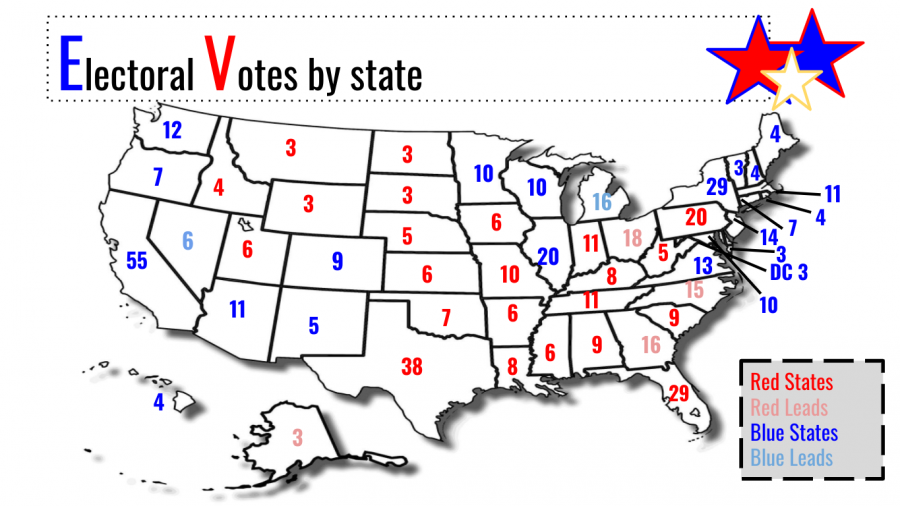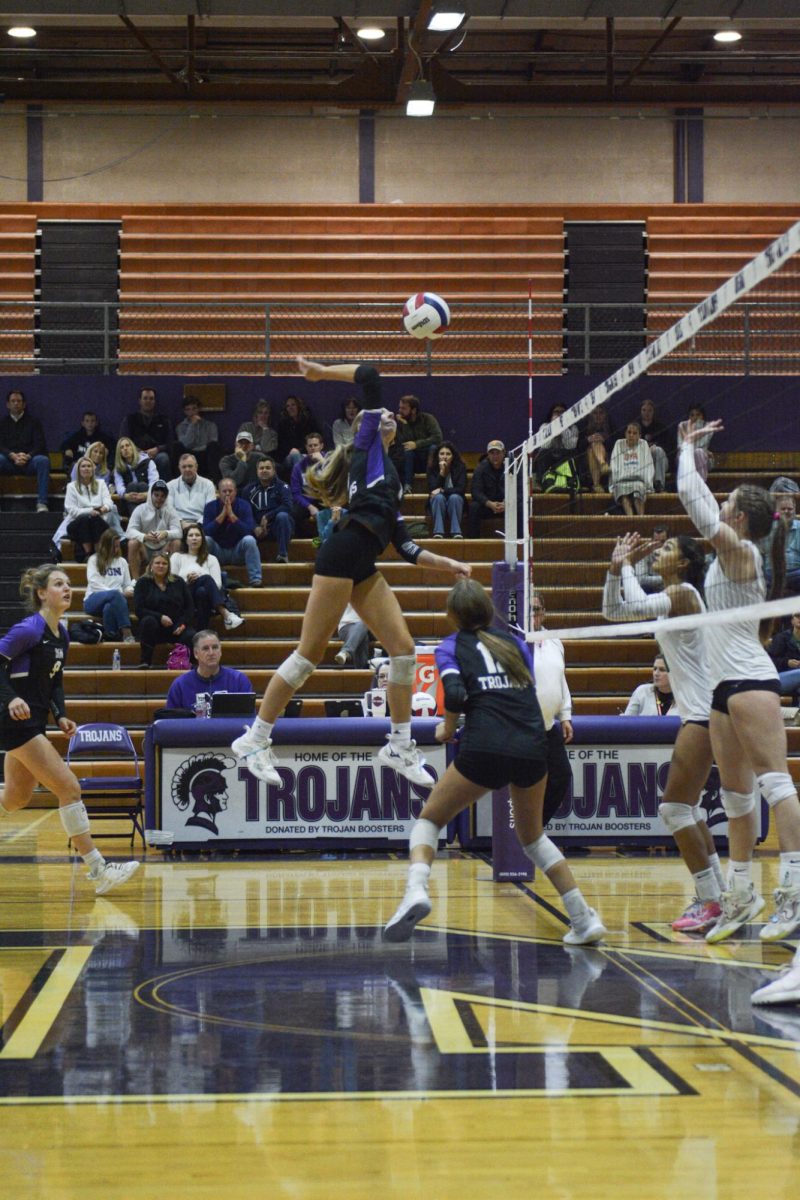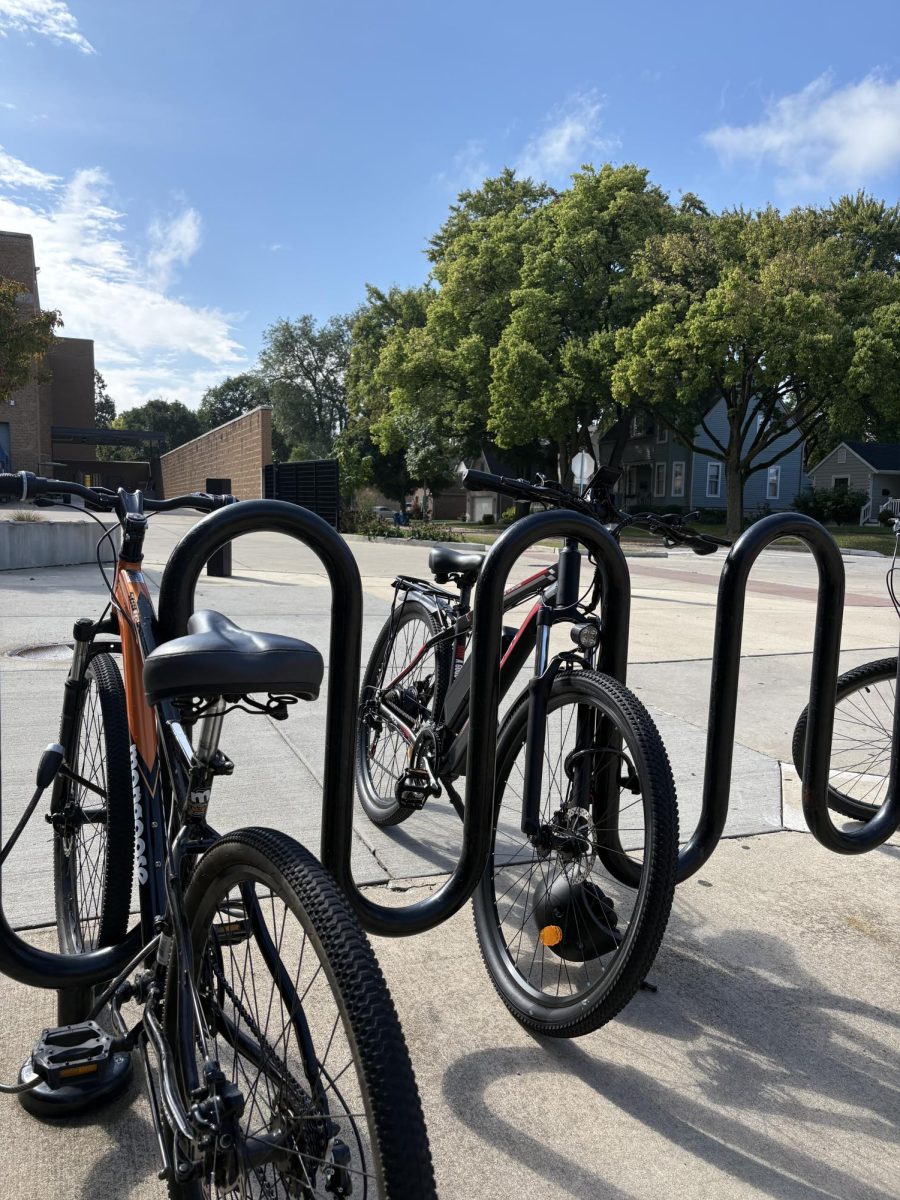The Electoral College: How does it work?
November 4, 2020
November 3 marks the last and final day voters are able to cast their votes. Due to the surge of mail-in voting this year the election process will be much slower. Even though Americans’ voices are heard all around when ballots are cast, the winner of the election is really based on the structure of the electoral college.
The slate of 538 electors are appointed by their state’s political party, meaning they are selected by the state’s Senate and House of Representatives. The people’s votes go to these individuals who are “pledged” to reflect that party’s candidate. Currently only 33 states and the District of Columbia have laws requiring electors to vote on the pledged candidates, referred to as Faithless elector laws .
The only states that do this differently are Nebraska and Maine which divide the electoral votes between the states and congressional districts popular vote; two going to the state and one vote going to each of the congressional districts.
The amount of the electoral votes solely depends on the capacity of the people; California has the highest with 55 electoral votes and six states have the lowest with only three electoral votes.
Each presidential candidate is trying to break 270 electoral votes to lead them to victory. So acknowledging these circumstances, it is still very possible that a candidate does not need to win the popular vote to win the overall electoral vote.
In 2016 we saw this as Clinton won the popular vote by 2.1%, yet Trump was able to win over five key swing states: Florida, Wisconsin, Michigan, Ohio, and Pennsylvania.
The electoral college works in a way where it is able to give rural states representation. Groups such as farmers, factory workers, or ones who reside in small towns would become marginalized. However, others believe that it should be more dependent on the popular vote after witnessing the last election.
The electoral college was instilled in the constitution since 1787, yet for years there has been common debate about whether or not to abolish this system. With the electoral votes rolling in for this election, it seems to be a tight race once again.


























